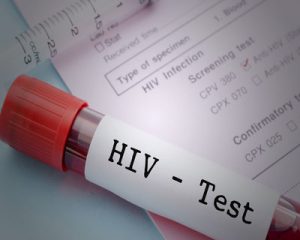- Home
- Editorial
- News
- Practice Guidelines
- Anesthesiology Guidelines
- Cancer Guidelines
- Cardiac Sciences Guidelines
- Critical Care Guidelines
- Dentistry Guidelines
- Dermatology Guidelines
- Diabetes and Endo Guidelines
- Diagnostics Guidelines
- ENT Guidelines
- Featured Practice Guidelines
- Gastroenterology Guidelines
- Geriatrics Guidelines
- Medicine Guidelines
- Nephrology Guidelines
- Neurosciences Guidelines
- Obs and Gynae Guidelines
- Ophthalmology Guidelines
- Orthopaedics Guidelines
- Paediatrics Guidelines
- Psychiatry Guidelines
- Pulmonology Guidelines
- Radiology Guidelines
- Surgery Guidelines
- Urology Guidelines
Scientists develop new type of HIV test on a USB stick

London : Scientists in Britain have developed a type of HIV test using a USB stick that can give a fast and highly accurate reading of how much virus is in a patient's blood.
The device, created by scientists at Imperial College London and the privately-held U.S. firm DNA Electronics, uses a drop of blood to detect HIV, then creates an electrical signal that can be read by a computer, laptop or handheld device.
The researchers say the technology, although still in the early stages, could allow patients to regularly monitor their virus levels in a similar way to diabetes patients checking their blood sugar levels.
It could be particularly useful in remote settings to help HIV patients manage their treatment more effectively, since current tests to detect virus levels take at least three days and involve sending a blood sample to a laboratory.
"Monitoring viral load is crucial to the success of HIV treatment. At the moment, testing often requires costly and complex equipment that can take a couple of days to produce a result," said Graham Cooke, who co-led the research from the Imperial's department of medicine.
"We have taken the job done by this equipment, which is the size of a large photocopier, and shrunk it down to a USB chip."
The test, which uses a mobile phone chip, requires a drop of blood to be placed onto a spot on the USB stick. Any HIV in the sample triggers an acidity change, which the chip transforms into an electrical signal. This is sent to the USB stick, which shows the result on a computer or electronic device.
Published in the journal Scientific Reports, results showed the stick test was 95 percent accurate over 991 blood samples, and the average time to produce a reading was 20.8 minutes.
Some 36 million people worldwide are infected with the human deficiency virus (HIV) that causes AIDS, and the majority of them live in sub-Saharan Africa.
Current AIDS drugs, called anti-retrovirals, reduce virus levels in a patients blood to near zero.
But in some cases the drugs stop working - sometimes because virus has developed resistance to them and the first sign of that would be a rise in a patient's so called "viral load".
Virus levels can't be detected by routine HIV tests, which can only show whether or not a person has the virus.

Disclaimer: This site is primarily intended for healthcare professionals. Any content/information on this website does not replace the advice of medical and/or health professionals and should not be construed as medical/diagnostic advice/endorsement or prescription. Use of this site is subject to our terms of use, privacy policy, advertisement policy. © 2020 Minerva Medical Treatment Pvt Ltd